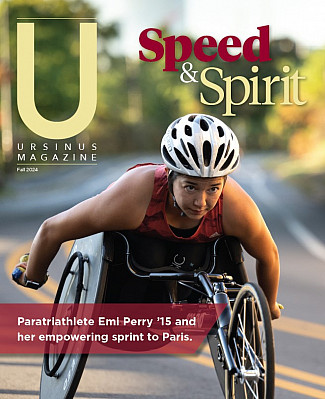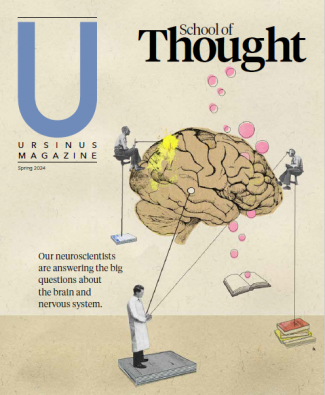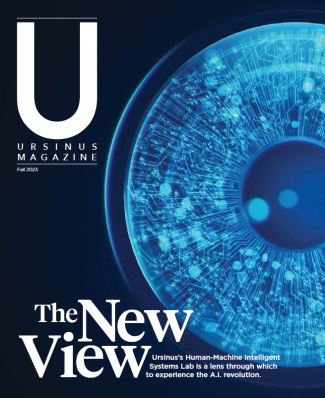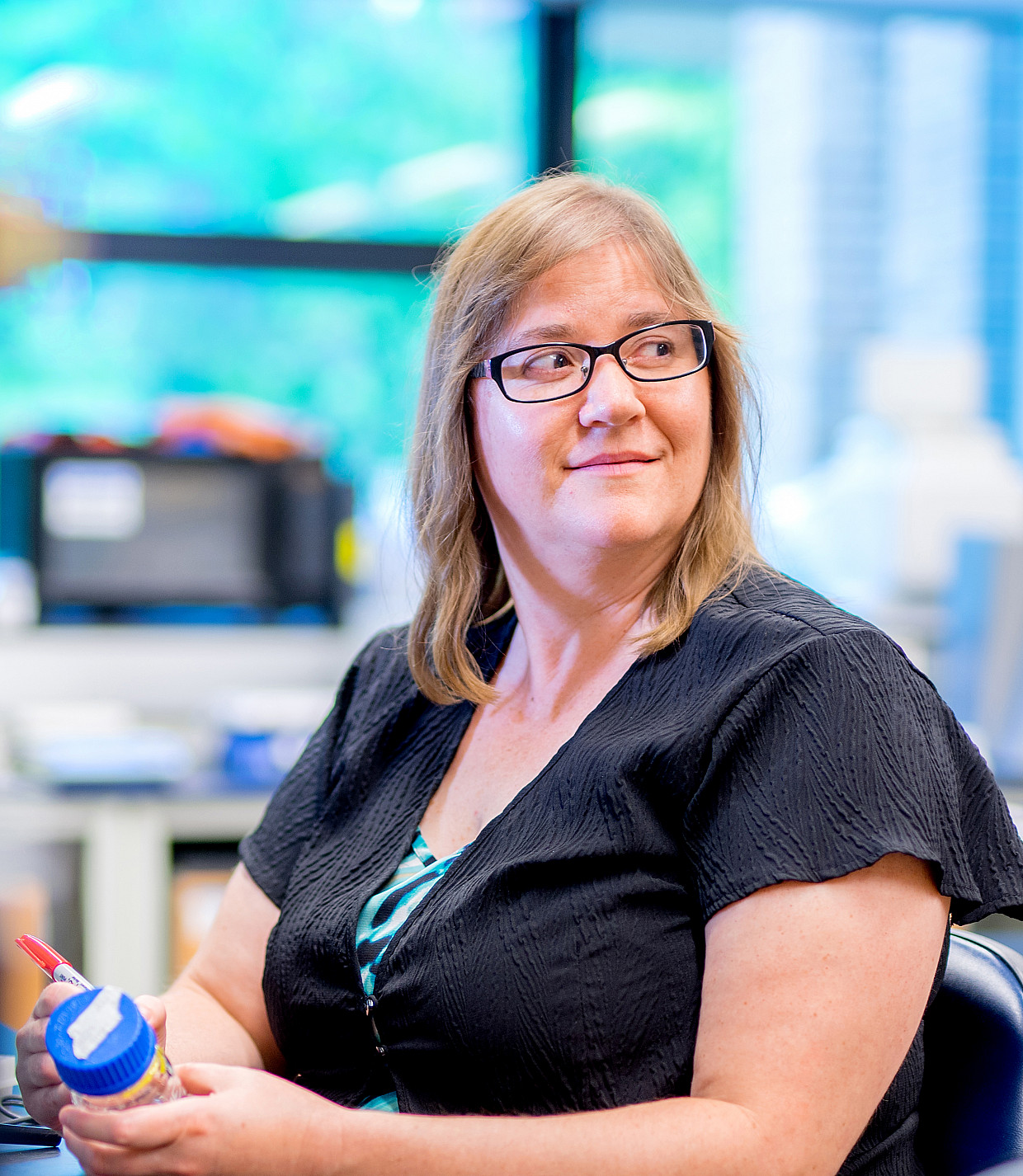
Getting to Know Rebecca Roberts
Rebecca Roberts has performed in Methacton Community Theater’s productions of Evita and The Little Mermaid, as well as Tune Out, a film by Tommy Armstrong ’20, and The Vagina Monologues, which was organized by Ursinus peer advocates. Of that performance, Roberts said, “It pushed me personally to stand up in front of students and release the professor in me and embrace the character.” Ursinus Magazine recently had a chance to take center stage with Roberts.
You teach a course called Innovation in Biology. What’s the most innovative tool or technique you’ve seen or used in your teaching career?
In Innovation in Biology, students learn that innovation is simply identifying a problem and coming up with a way to solve it. A big problem in teaching biochemistry and structural biology is that the molecules are too small to see. I would have to say that the most innovative techniques that I use are all aimed at getting over this problem and allowing students to appreciate what’s really going on at the molecular level. We use computer modeling software to explore the shape of proteins, we build proteins out of paper or tubers (imagine small pool noodles), or anything I can find that might work. I spent part of my spring break at a workshop in Baltimore on developing biomolecular visualization literacy in students. I will be heading to the Milwaukee School of Engineering this summer to learn how to develop and print protein models using the 3D printers we have on campus. These protein models will be just one more tool that I can use in the classroom to solve the problem.
If you could invent something truly innovative to help you and your students with your research, what would it be? Assume anything is possible!
Glasses that would let you see proteins in action in real time! Proteins are incredibly dynamic and often respond quickly to environmental changes—seeing them directly respond to something we add in the lab, such as estrogen or bisphenols, would be astounding.
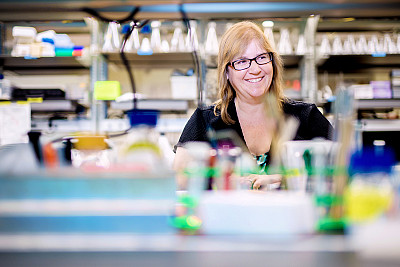
Celebrating the successes of the students as they make new discoveries. They are doing true research and that journey can be demanding and frustrating. The best part of my job is supporting them through the process and celebrating both the big ta-da moments and the small victories.
Your research lab is your scientific stage, but you’re also known to take a different stage from time to time. What do you enjoy about acting?
Wow—this is a hard one! Lately, it’s been sharing the stage with my three kids and husband through a local community theater and fostering a love of theater in my kids. I love the theater community—it is open, diverse and passionate. Much of a professor’s life is spent thinking alone, so the cooperative aspect of the theater is a joy for me. Working hard together on a creative level is invigorating and fun!
Do you have a favorite musical, play or movie?
Star Wars and The Sound of Music. I’m a kid of the ’80s, so you can add pretty much anything from that era to the list.
Are there any similarities between acting and “doing science?”
To do either well you need to keep the big picture in mind while focusing in on the details. Both involve communicating to an audience. Both require perseverance and practice.
If you were to write a musical about protein function research, who would you cast in the lead role?
Ha! Um, not sure – I would have to hold auditions!
